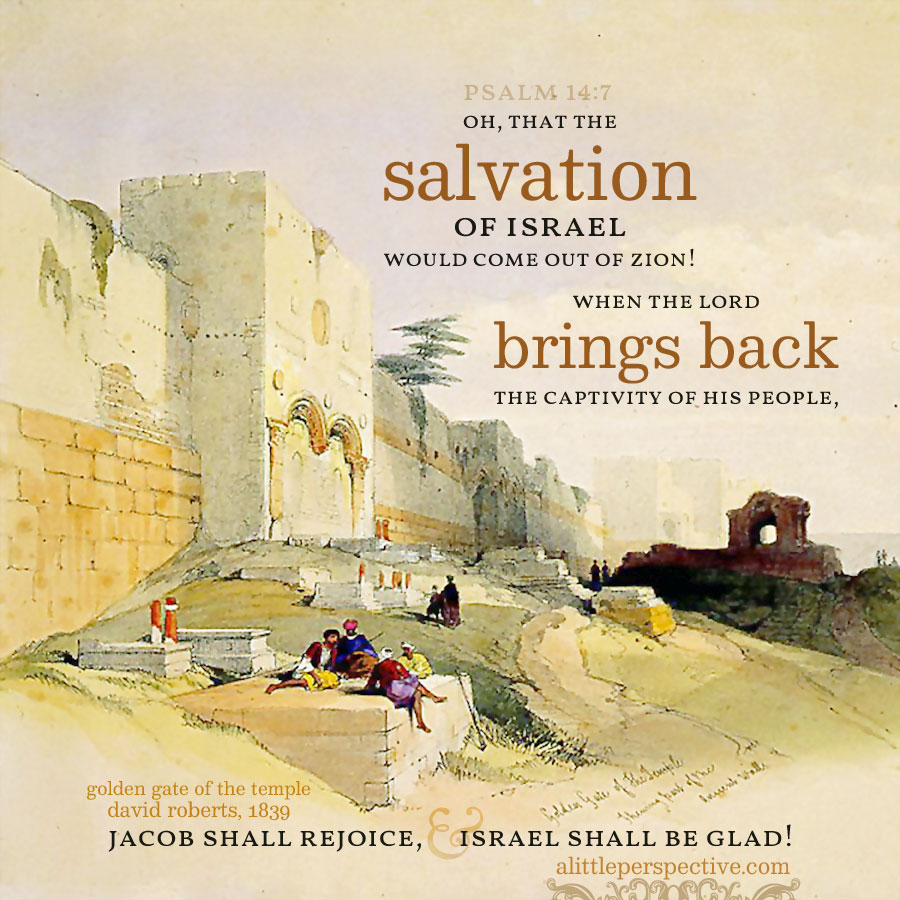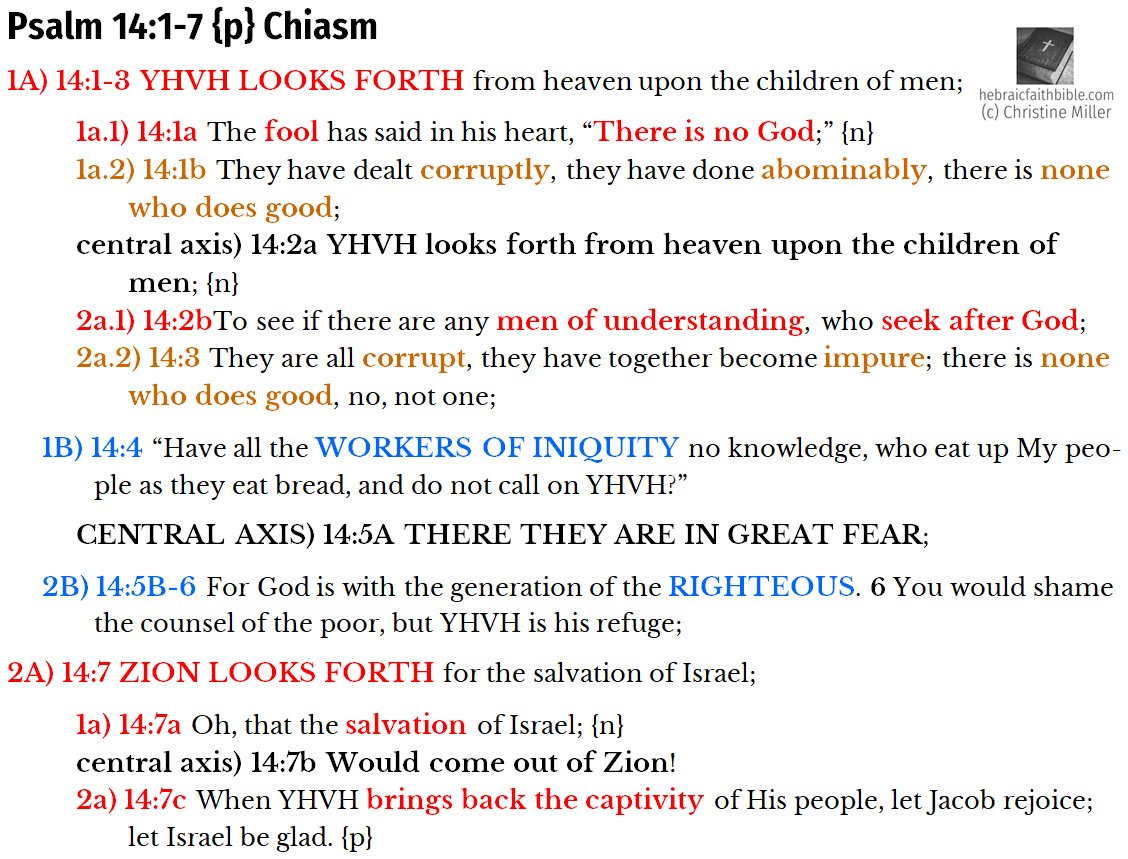Read Psalm 14 here (text coming …) or at Bible Gateway.
The Hebrew paragraph:
14:1-7 {p} The foolish and wicked children of men contrasted with the wise and righteous children of Zion.
Psalm 14:1-7 Chiastic Structure:
ZION is Strong’s H6726 tsiyon, a place name, from Strong’s H6725 tsiyon, a concrete noun meaning, “signpost, waymarker;” from an unused verbal root, which Gesenius lists as tsadey + hey + hey.
tsadey צ,ץ = the trail, thus a man concealed, journey, chase, hunt
hey ה = man w/ raised arms, thus look, reveal, wonder, worship, breath
hey ה = man w/ raised arms, thus look, reveal, wonder, worship, breath
The Hebrew Root Word parable is of squatting down (tsadey, as a man on a trail squats down to conceal himself from the prey) so that excrement issues forth, as per the Ancient Hebrew Lexicon. Someone issuing forth as in a migration looks for (hey) the signposts in the desert to direct them (hey, in the sense of revelation) in the way. Let’s put this on the back burner for now.
Zion is mentioned often in the Psalms, but what and where is it? The Lexicons says it’s a poetic or prophetic name for Jerusalem. But there is more to it than that.
YHVH loves the gates of Zion more than all the dwellings of Jacob. Glorious things are spoken of you, O city of God! Psa 87:2-3
Notice that the city of God is not named Jerusalem but Zion. To understand why, consider the Teaching Tool of Natural Pictures. If Jerusalem is the natural city, the capital city of David, thus of Israel, then Zion is the spiritual city, the capital city of the kingdom of God, with Messiah its King.
But you have come to Mount Zion and to the city of the living God, the heavenly Jerusalem, and to myriads of angels, to the general assembly and church of the firstborn who are enrolled in heaven, and to God, the Judge of all, and to the spirits of the righteous made perfect, and to Jesus, the mediator of the new covenant, and to the sprinkled blood, which speaks better than the blood of Abel. Heb 12:22-24
Mount Zion is carefully identified with the heavenly capital city, not the earthly capital city of Jerusalem. Why? Because the earthly Jerusalem, Jesus lamented, kills the prophets and stones those who are sent to her (Mat 23:37). The earthly Jerusalem is unwilling to be gathered under the Lord’s wings.
In Augustine of Hippo’s classic of Christian scholarship, The City of God, he showed that there were really only two cities and two kinds of citizens: 1) The city of God and those who dwell therein, who have heavenly citizenship, not of this earth; and 2) The city of man which is always in opposition to God.
Anyone who has come to Jesus for salvation is reborn as a citizen of the kingdom of God, a citizen of the spiritual city of Zion (Joh 3:3-6). Back to the Hebrew Root Word. Citizenship in Zion is a journey, clearly marked with signposts. Those signposts are in the Word of God that we are reading and learning.
If there are questions, this is a good resource:
Citizenship matters – Christine Miller


















Leave a Reply